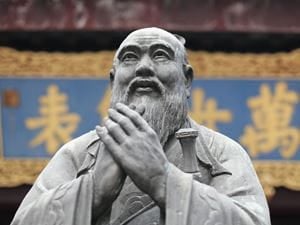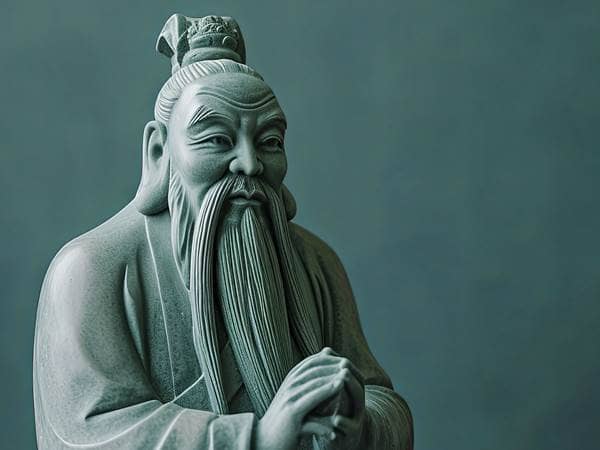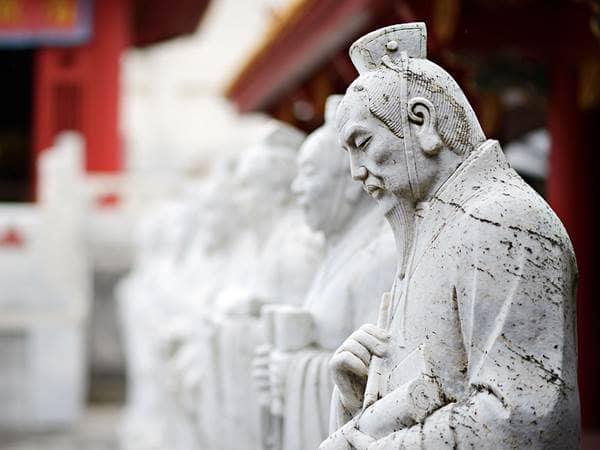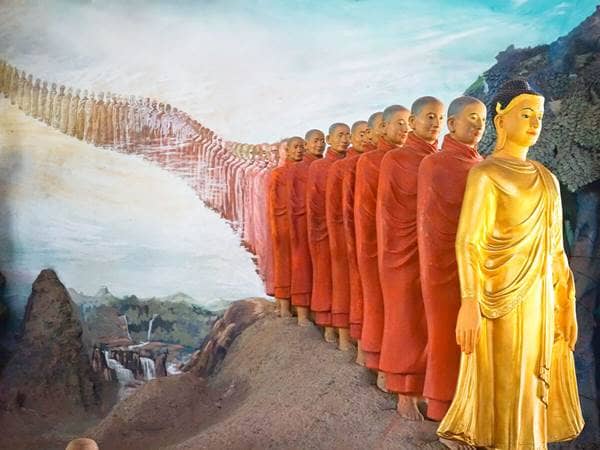
While Confucianism is not technically China’s largest religion, it is actually a component of that county’s most popular faith tradition. Often referred to as “Chinese Popular Religion,” China’s most popular belief system is an amalgamation of Religious Taoism and Confucianism, mixed with other lesser known “folk religions” that have existed in China for millennia. Other self-standing religions, like Buddhism, Christianity, and Islam exist alongside of “Chinese Popular Religion, as do Confucianism and Taoism (that have their own forms aside from the part they play in the “Popular Religion” of China).
While Confucious (i.e., “K’ung Fu-tzu” or “Master Kong,” as he is often referred to) did not formally start a religion, the philosophy, ethics, and even educational stance of the great sage morphed into the equivalent of a religious tradition in the years after Kong’s death. It is often suggested that he died feeling somewhat of a failure, unsure that his teachings would have any significant impact after his death. (It wasn’t until the 3rd century CE Han Dynasty that his teachings were formalized into an organized system with “official texts.”) And yet, Confucianism’s influence on China cannot be underestimated, even if it did take around 700 years to begin to flourish.
After K’ung Fu-tzu’s death, his disciples took the things he had taught them, and those were diffused throughout China, slowly permeating, and greatly influencing various already existing social structures (such as the government, family life, business dealings, and even other religions).
From China, his philosophy eventually made its way to Vietnam, Korea, and Japan, where it became heavily influential as well. Part of what facilitated Confucianism’s diffusion into these other parts of the world was the spread of Chinese governmental practices, along with China’s familial, philosophical, linguistic, and artistic structures.
Because Confucianism so heavily impacted each of these elements of Chinese culture, when that country’s influence spread, so did Confucianism—into and throughout most of East Asian society. Thus, today, Confucianism is largely inseparable from (and even synonymous) with East Asian culture.
Although only a very small percentage of Chinese exclusively practice Confucianism (independent of any other religious tradition), it remains one of the most impactful cultural forces in China. For example, other religions in China have many Confucian elements. This is true of Buddhism and Taoism, but also of China’s most populous faith tradition—“Chinese Popular Religion.”
In addition, family and work relationships are rooted in the five “social relationships” of Confucianism (i.e., father to son, elder brother to younger brother, husband to wife, older friend to younger friend, and ruler to subject). At least until 1905, one’s upward “social mobility” in China was very much tied to one’s embrace of and living of Confucian principles. Thus, whether in one’s familial, social, political, or work life, one cannot get away from the impact of Confucian thought in and on China.
Though the current government is communist, and though Mao’s “revolution” caused the virtual abandonment of Confucian rituals, the CCP still has the fingerprints of Confucious on its various parts—albeit, in subtle ways. Starting at least as early as the twelfth century, Chinese rulers tended to define socio-political “orthodoxy” through the lenses of Confucian teachings. And, for some two millennia, if one wished to become a government official or civil servant, one was required to pass an exam tied to a knowledge of the Confucian Classics.
Throughout the imperial dynasties (1046 BCE—1644 CE), Confucian rituals were officially part of the state religion. And, to this day, Confucian temples (in China) are preserved by the government because they are viewed as national “cultural monuments” (in addition to being important tourist sites).
It may be no exaggeration to say that Confucianism has been one of the most important and influential sources of enculturation in China, in addition to being one of the most civilizing influences. While its influences have, in many ways, gone “underground” (since Chairman Mao’s “Cultural Revolution”), if one examines any aspect of Chinese culture, religion, or family life, one will find evidence of the lingering influence of that sixth century BCE sage, Confucious.
5/10/2024 4:56:00 PM

















